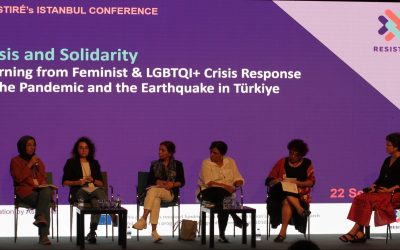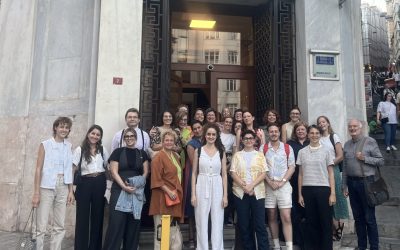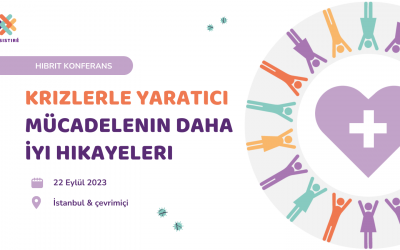Results from RESISTIRÉ’s first research cycle pointed out that inequalities related to green space access increased during the pandemic. COVID-19 polices highlighted the need for more urban green spaces, as people started to utilise existing green areas more often. They also emphasised the fact that some neighbourhoods have significantly less green space than others, exacerbating physical and mental health problems, as well as making it more difficult for residents to socialise and engage in community-building.
Moreover, although a green space is a positive element that should theoretically be enjoyed by all, it can also exclude those whose needs aren’t met and/or who experience accessibility issues.
What we can learn from this to make green spaces more inclusive and adaptable to everyone’s needs?
These issues were discussed with experts, activists and RESISTIRÉ researchers during a dedicated Open Studio, leading to two co-designed outputs:
- A factsheet was published containing recommendations to promote green spaces and mitigate gentrification,
- A call for pilot projects entitled ‘Green Spaces as Ecosystems of Care’ was launched, focused on promoting inclusiveness.
transforming two green spaces into ecosystems of care
Two projects, one in Austria and one in Spain, were selected under the ‘Green Spaces as Ecosystems of Care’ call.
The term ‘Ecosystem of Care’ includes not only the care for the individual, but recognises and cares for groups that are typically discouraged from frequenting green spaces. An ‘Ecosystem of Care’ also addresses the natural inhabitants of green spaces and embraces the need to protect wildlife. Finally, it refers to democratic care and conflict resolution as well. The utilisation of green spaces as ‘Ecosystems of Care’ enables the modification and evolution of these spaces, and ensures that the purposes of green spaces can change with the needs of surrounding and connected user groups.
Triester Neighbourhood: Transition Graz (Austria)
The Triester Neighbourhood is a multi-ethnic low-income neighbourhood in the south of Graz, Austria. During this pilot project, Transition Graz and Illusions identified existing users of the green spaces, initiated conversations on issues/needs identified related to the green spaces, and collected ideas for improvements though the organisation of various events in the green spaces.
The project will be sustained beyond RESISTIRÉ’s involvement, with the financial and organisational support of the local authorities.
Parc de l’Espanya Industrial: aquí (Spain)
This pilot project aimed to transform Parc de l’Espanya Industrial, Barcelona, into an Ecosystem of Care by engaging with users and (former) non-users of the park though co-creation workshops and events, and establishing alliances of care with local associations and the district authorities of Sants.
The project contributed to developing the ‘software’ of the park by increasing connections and collaborations between different actors in and around the park. Soon after the conclusion of the project, the Parc de l’Espanya Industrial started undergoing renovations which focused on the ‘hardware’ side of the park, introducing structural changes.
We are thrilled to have co-founder of aquí Clément Rames present at RESISTIRÉ’s final conference on 20-21 June 2023!



